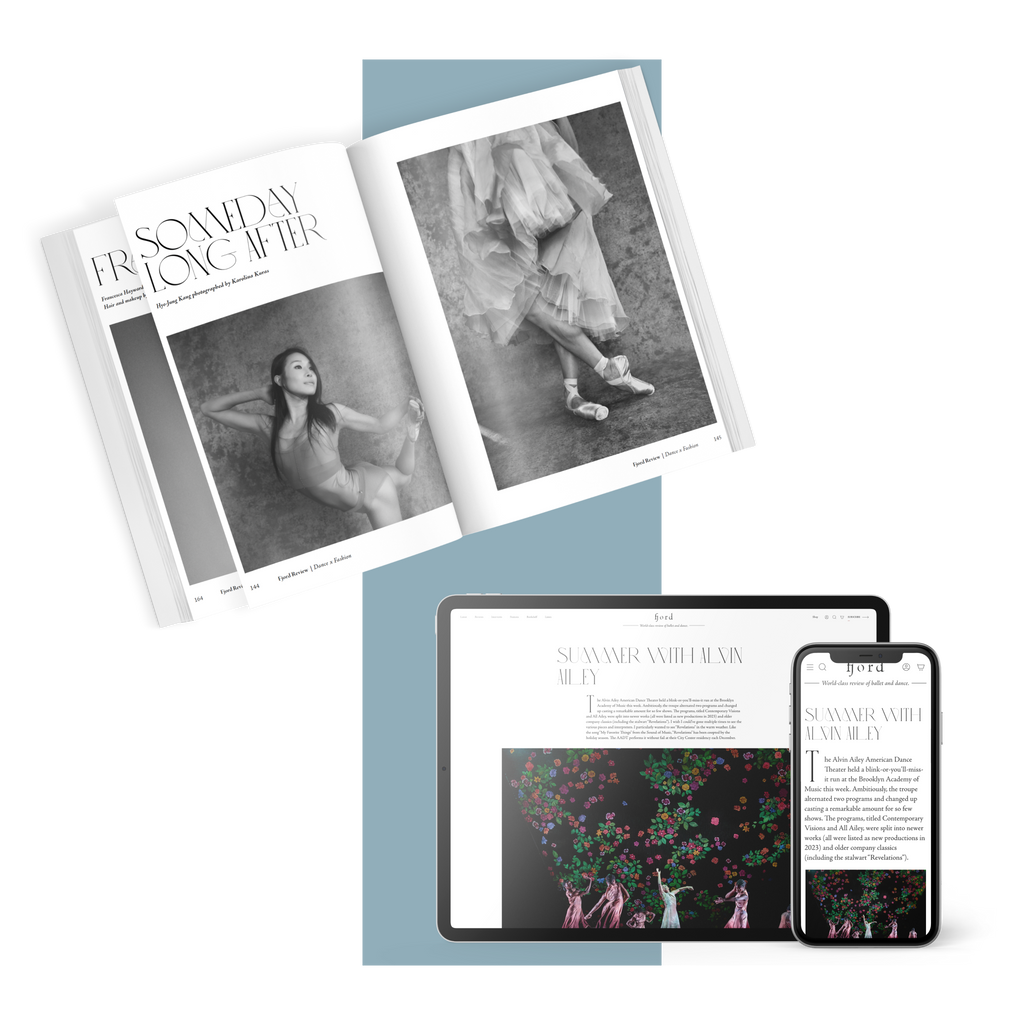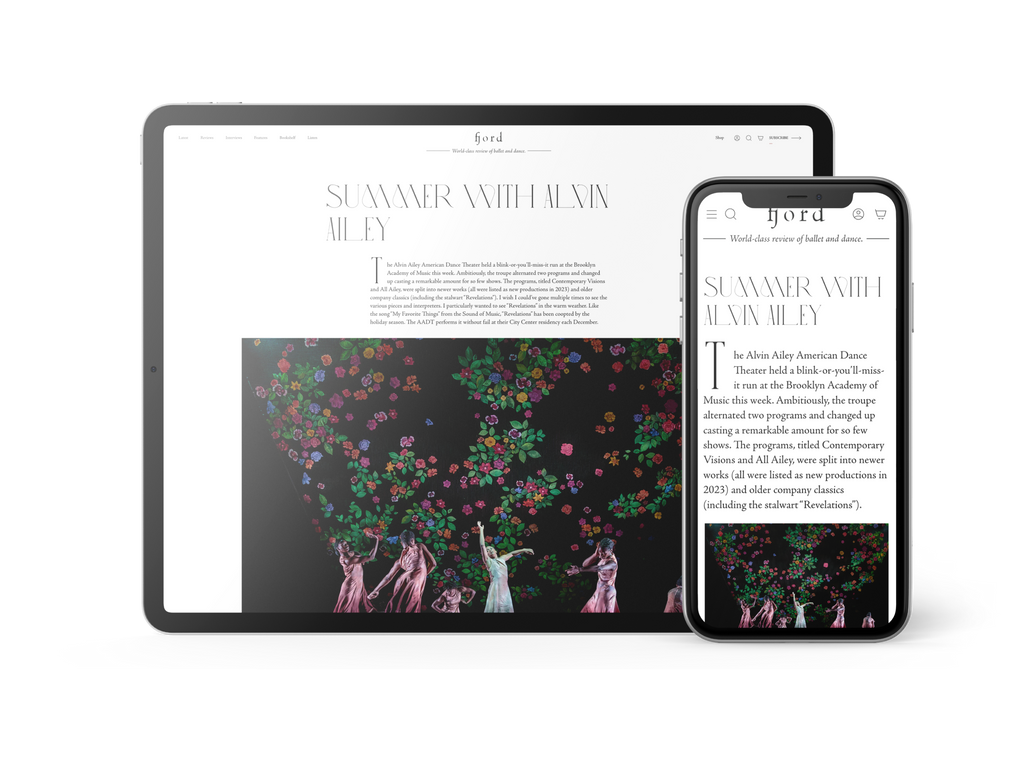Under stage designer Peter Pabst’s fanciful eye, gallons of water, beautiful and wild, pour from cups, buckets, mouths and eventually the rafters, a wall of rainfall with exquisite slices of light glimmering through its slats. By the end of act one, the cast is wading in a foot-deep tidepool surrounding the boulder. The tidal shift sends everyone cuckoo; silly antics abound, from goofy exchanges to races to unclasp a bra. Tsai-Wei Tien shows marvellous comedic timing with her knowing smiles to the audience, Maria Giovanna Delle Donne too. Even the power struggles—a classic Bausch conceit—are played for laughs, though some take a dark turn: shaken bodies and sharp blows, kisses that test the boundaries of consent. The underbelly of desire—the grief of it—slips in and out of sight, shrouded in the surf.
The work finds some gravity in the old-world glamour of evening gowns and rumpled suits—another Bausch signature—and in enigmatic moments of sexual frisson: a wry disrobing sequence, and the improbable sensuality of an apple snatched from an open mouth. A screwball twist on musical chairs reads like a frenzied mating ritual, part zany and part transgressive, the twelve-strong ensemble darting between empty seats, taking turns planting smooches and resting their bodies on one another.










comments